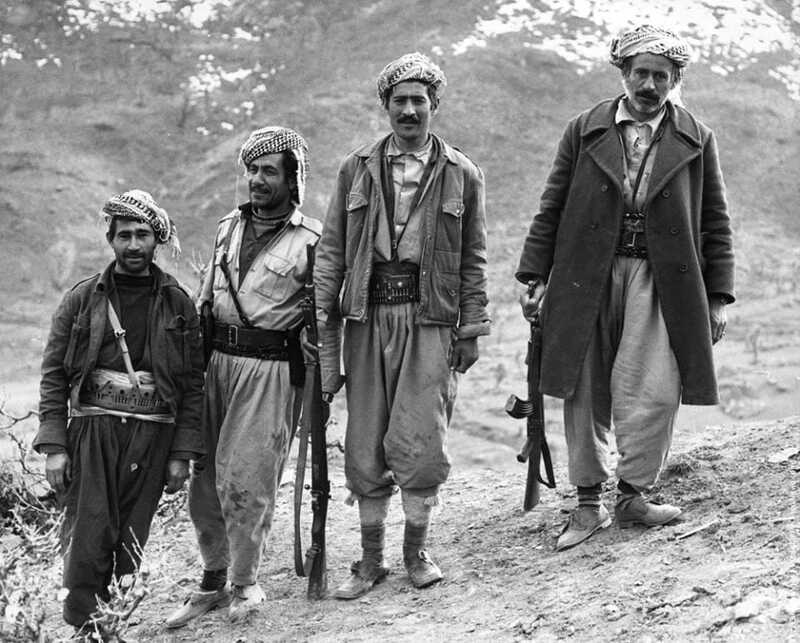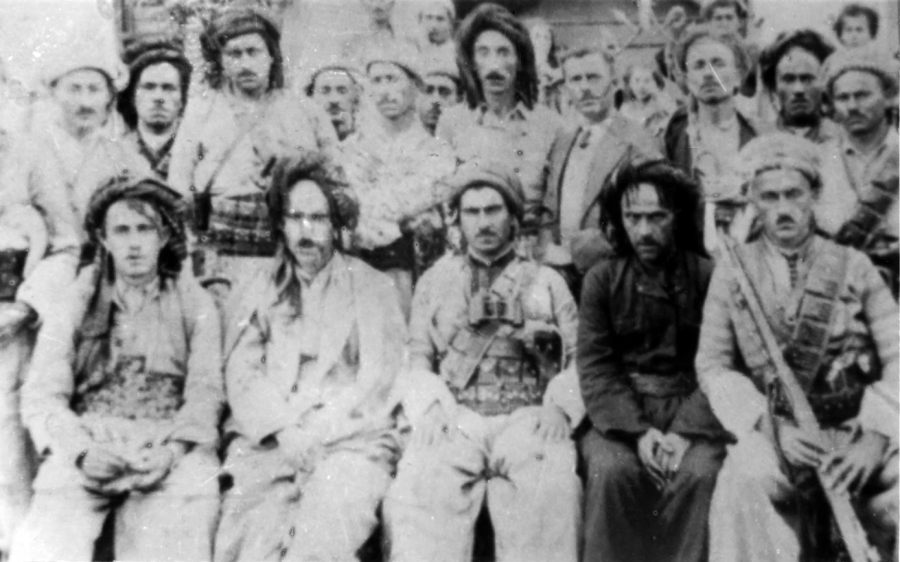After Sheikh Mahmoud Barzanji's revolution got defeated in the South part of Kurdistan, this time the Kurdish revolution reached the North part of Kurdistan which was known as the Barzan region. The Barzani clan in the history of Kurdistan revolutions played an important role and their most prominent figure was the great Mustafa Barzani.
After Sheikh Mahmoud Barzanji's movement ended in Suleimani, the Barzani clan's movements began in the Badinan areas under the Sheikhs of Barzan leadership. The first movement of the Barzan against the central government began for Sheikh Ahmad Barzan refused the decision of Baghdad to establish a police station in the Barzan region and their disagreement on Barzan's power development in that area. The other reason was Sheikh Ahmad Barzan's major attack on the Bradost clan who were the central government's allies. In 1932 the Iraqi military units with the support of Britain's air force made Sheikh Ahmad's troops retrieve. Sheikh Ahmad fled to Turkey and he was pardoned later and returned to Suleimani.
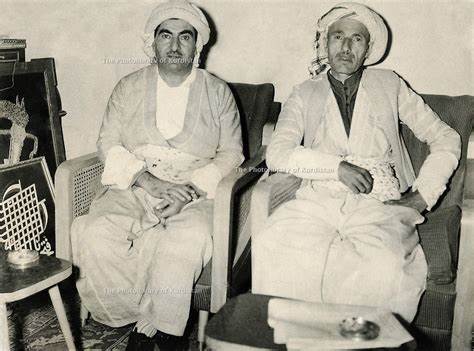
In April 1933, Mullah Mustafa Barzani left Suleimani with three friends of his secretly and he went to the Barzan region and began his armed revolution against the central government. After the battle between the Kurdish forces and the Iraqi army and police forces developed, the British embassy in Baghdad asked the Iraqi government and Mullah Mustafa Barzani to seek a solution via negotiation. Mullah Mustafa accepted Britain's request after he declared some conditions first.
Mullah Mustafa's conditions included: 1. Firing or banishing those officials who had received bribes or had misused their position in their offices. 2. Establishing the Kurdistan state which included Kirkuk, Suleimani, Hawler (Erbil), Khanaqin, Duhok, Zakho, Emadieyeh, Shingal (Sinjar), and Shekhan. 3. The Kurdish language should be recognized as a formal language. 4. The minister counsellor in all the ministry offices must be a Kurd. 5. Selecting a Kurdish minister who is responsible for Kurdistan state's affairs.
Mullah Mustafa became the most famous Kurdish nationalist and he remained the most powerful Kurdish nationalist to the last days of his life until 1979.
In 1946, the Democratic Party of Kurdistan was established. This party played a great role in the South part of Kurdistan.
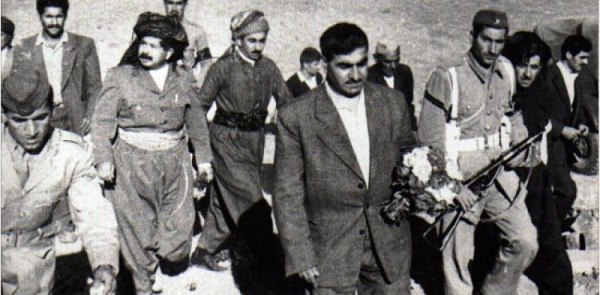
When Abdul Karim Qasm succeeded in ending the Monarchy system on January 14, 1985, and he announced the beginning of the Republic system in Iraq, his efforts were a revolution, not a coup. The opposition Democratic party, one of which was the Democratic Party of Kurdistan, supported him. In the temporary constitution that was approved on January 27, 1958, a country in which Kurdistan was a part of it agreed on approving the national rights of Kurds formally for the first time. Abdul Karim Qasm announced that the Democratic Party of Kurdistan is a legal party and when Mullah Mustafa Barzani returned from the Soviet Union, he was received as a hero.
Abdul Karim Qasm did not keep his idea of Kurdish_ Arabic equality and he turned into a dictator who tried to oppress the Kurdish movement and the Democratic Party of Kurdistan activities, however, this time the Kurdish movement was not defeated because it was no longer a classic form of movement but rather a systematic and united one. Qasm did not foresee this situation and he believed that Kurds could not resist. This war made Qasm very weak both politically and militarily.
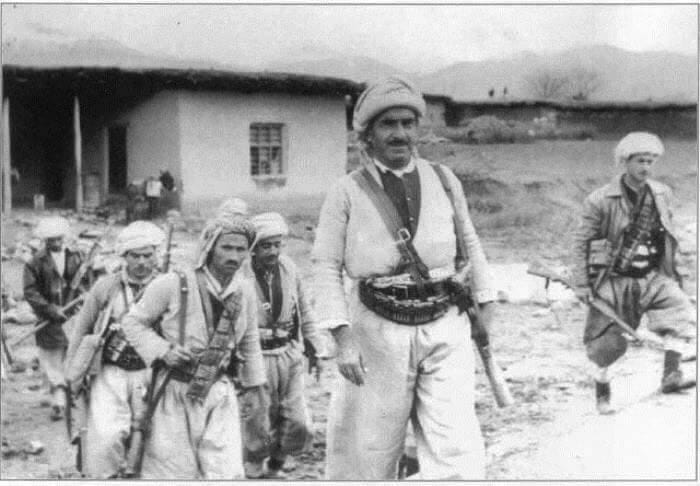
On February 8, 1953, the Ba'ath officers cast Qasm aside and they began a new chapter for a new power. The new state under two generals’ command, President Abdulsalam Aref and Prime Minister Ahmad Hassan Al Bakir, attacked Kurdistan on June 10, 1963.
During this war, the Iraqi army got defeated by the Kurdish revolutionaries several times. On November 18, 1963, Marshal Abdulsalam Aref, the President, who was not practically a member of the Ba'ath Party dismissed his Prime Minister, General Hassan Al Bakir who was from the Ba'ath Party. Aref declared a ceasefire with General Barzani on February 10, so the second war of the Kurds with the Iraqi government ended; however, two years later on March 4, 1965, the war began again. On July 17, 1968, the Ba'ath Party launched a coup.
In April 1969, the new Ba'ath regime commenced the fourth war with Kurdistan. While the war was still going on, General Hassan Al Bakir who always tried to introduce himself as the "Nation's Father", sent Aziz Sharif as his private agent to negotiate with General Barzani. These private negotiations resulted in the March 11, 1970 agreement.
